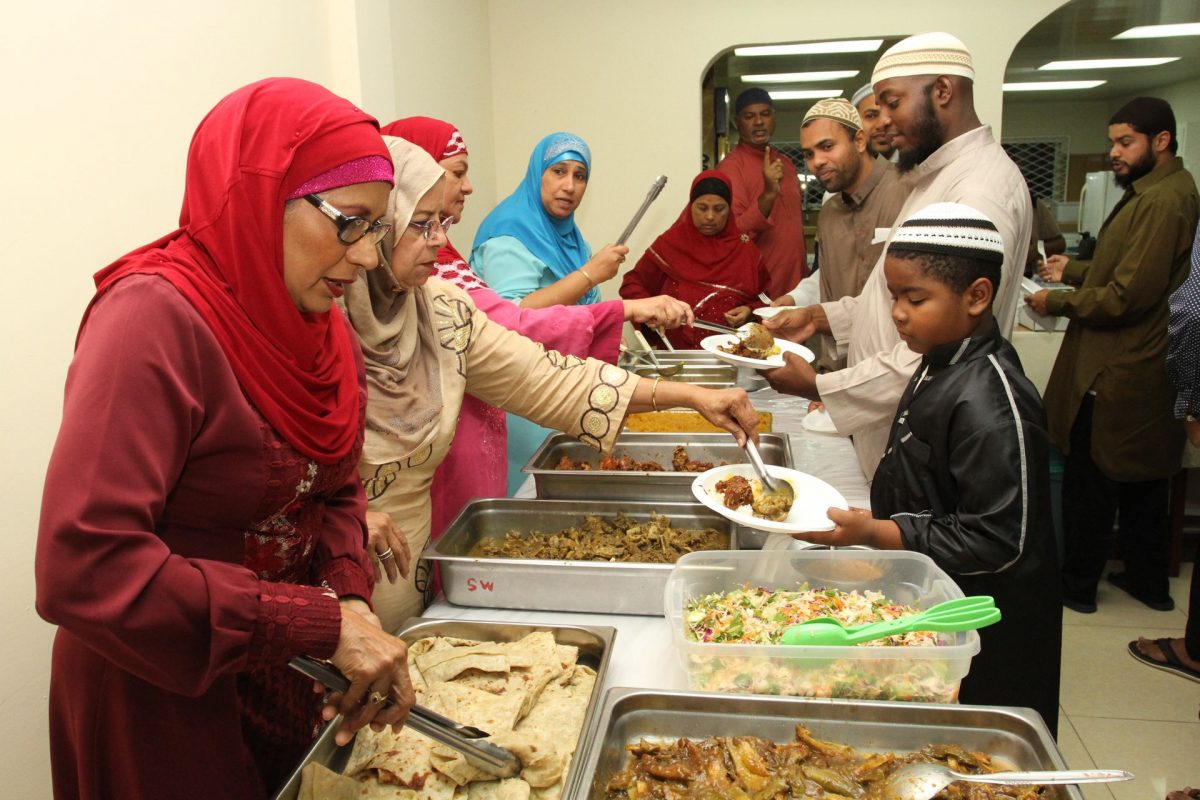(Trinidad Guardian) In keeping with COVID-19 restrictions and guidelines, two of the largest Muslim organizations in the country have advised their members not to congregate at masjids during the holy month of Ramadan.
Usually, friends and families would gather daily at their respective masjids to end fast and pray, but instead, this will be done at their respective homes.
The sighting of the crescent moon marks the start of Muslims’ month-long fast for Ramadan.
Guardian Media was told that the moon was expected to be sighted last night.
Trinidad Muslim League (TML) president Fraz Khan said, “This is a difficult time for us in terms of the restrictions and the recommendations by the World Health Organisation (WHO) in place to reduce the spread of COVID-19. We will comply with those guidelines as it relates to social distancing, reducing the number of persons gathered. We understand that they are doing all those measures to restrict the spread.”
As a result, he said there will be no large gatherings to break their fast or the nightly congregational prayers at the various mosques.
“To control the spread of the virus within the population and in light of the government regulations, this is going to be done at families’ homes and not collectively until there is a change in the guidelines. We are also looking at WHO guidelines for Muslims during the holy month of Ramadan. We are looking at the document to see if possible to implement some of those guidelines.”
Shamshad Ali, second vice president of the Anjuman Sunnat ul Jamaat Association (ASJA), said they are asking people who contribute towards iftar and dinner to give the money to families to cook their food at home. “This is for Muslim and non-Muslim families because during Ramadan the mosques cater for the entire community. We have 50 mosques throughout the country affiliated with ASJA. We don’t discriminate.”
During this holy month, he said, ASJA also gives out hampers in the communities.
“Fortunately or unfortunately Ramadan fell in this time (of COVID) so people will be getting extra support,” he said.
Ali said Muslims could use this time to strengthen family bonds. While Muslims are facing a unique position, he said Islamic theology speaks to such a situation.
“Prophet Muhammed said in the event of any epidemic to stay in place. If you are out of your normal environment, stay where you are. If you are in your environment stay in place. No matter where you are don’t attempt to cross boundaries until such time that the epidemic or plague has subsided.”
If the COVID-19 regulations are still in place for Eid ul Fitr, he said they will liaise with the various authorities to decide how alms will be given out to the needy.
Usually, people would gather at the various mosques, but Ali said once the restrictions are still in place that practice will not be encouraged.




